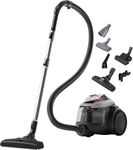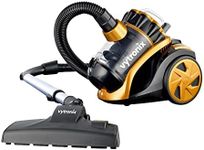Buying Guide for the Best Cylinder Vacuum Cleaners
Choosing the right cylinder vacuum cleaner can make a significant difference in maintaining a clean and healthy home environment. Cylinder vacuum cleaners are known for their versatility and ease of use, especially in homes with a variety of floor types and hard-to-reach areas. When selecting a cylinder vacuum cleaner, it's important to consider several key specifications that will determine how well the vacuum will meet your cleaning needs. Understanding these specifications will help you make an informed decision and ensure that you choose a vacuum cleaner that is efficient, effective, and suitable for your home.Suction PowerSuction power is a measure of how effectively a vacuum cleaner can pick up dirt and debris. It is one of the most important factors to consider because it directly affects the vacuum's cleaning performance. Suction power is often measured in watts or air watts. Higher suction power means better cleaning performance, especially on carpets and rugs. However, for homes with mostly hard floors, a moderate suction power may suffice. Consider your home's flooring and the types of debris you typically encounter to determine the right level of suction power for your needs.
Filtration SystemThe filtration system in a vacuum cleaner is crucial for trapping dust, allergens, and other small particles, preventing them from being released back into the air. High-efficiency particulate air (HEPA) filters are considered the gold standard, capturing 99.97% of particles as small as 0.3 microns. If you or anyone in your household suffers from allergies or asthma, a vacuum with a HEPA filter is highly recommended. For general use, a standard filter may be sufficient, but always consider the health needs of your household when choosing a filtration system.
CapacityThe capacity of a cylinder vacuum cleaner refers to the size of its dust container or bag. A larger capacity means you can clean for longer periods without needing to empty the container, which is convenient for larger homes or extensive cleaning sessions. Smaller capacities are lighter and easier to maneuver, making them suitable for smaller spaces or quick clean-ups. Consider the size of your home and how often you vacuum to decide on the right capacity for your needs.
Weight and ManeuverabilityWeight and maneuverability are important for ease of use, especially if you have a multi-story home or need to carry the vacuum up and down stairs. Lighter models are easier to move around and store, while heavier models may offer more power and capacity. Consider your physical ability and the layout of your home when choosing a vacuum cleaner. If you have limited storage space, a compact and lightweight model might be more suitable.
Noise LevelThe noise level of a vacuum cleaner can affect your comfort while cleaning, especially if you have young children or pets that are sensitive to loud noises. Noise levels are measured in decibels (dB), and a quieter vacuum typically operates at around 60-70 dB. If noise is a concern, look for models that are specifically designed to operate quietly. Consider when and where you typically vacuum to determine how important noise level is for your situation.
Attachments and AccessoriesAttachments and accessories can enhance the versatility of a cylinder vacuum cleaner, allowing you to clean a variety of surfaces and hard-to-reach areas. Common attachments include crevice tools, upholstery brushes, and pet hair tools. If you have specific cleaning needs, such as dealing with pet hair or cleaning delicate surfaces, look for a vacuum that includes the appropriate attachments. Consider the types of surfaces and areas you need to clean regularly to determine which accessories will be most useful for you.



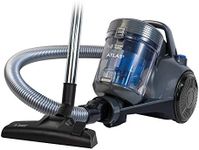
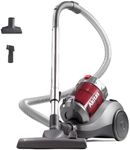
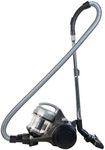
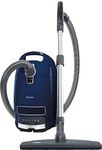

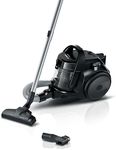
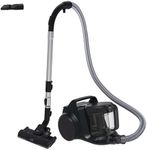

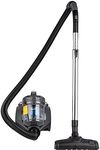
![Hoover Cylinder Vacuum Cleaner Bagless, H-Power 300 with HEPA Filter, Long Reach, Pet Tool, Black [HP320PET]](https://images-proxy.bestreviews.guide/WxvoraTHa582D9RLTCLGbgJdPcI=/0x150/https://m.media-amazon.com/images/I/31QgDDyM8hL._AC_CX679_.jpg)
